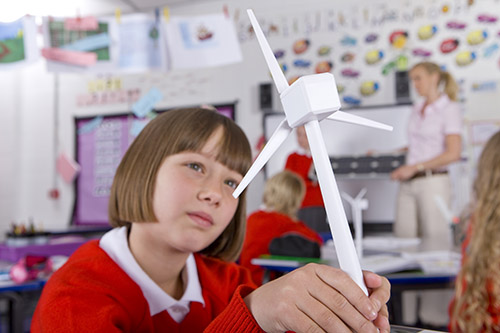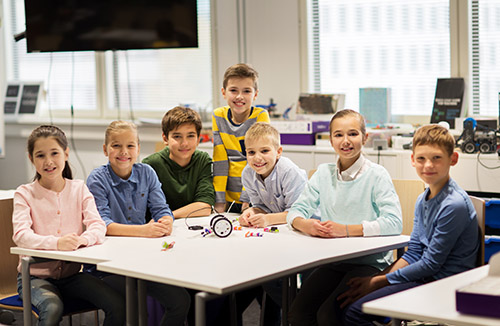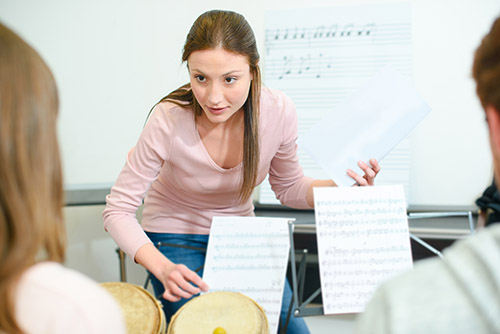The global search for education
According to a recent report by PwC, within 15 years, Artificial Intelligence will take over 38% of US jobs. This trend is expected to continue. What will employment look like? Which jobs will disappear and what does all of this mean for education?
Sir Michael Barber has been at the forefront of global thinking in education for the past twenty years. He served as Chief Education Advisor to Pearson. He is the Founder and Chairman of Delivery Associates.
In the past, Barber has served as the head of the global education practice at McKinsey, advisor to Prime Minister Tony Blair, and as a global expert on education reform and implementation of large-scale system change. Additionally, he has been a consultant to governments around the world.
In The Global Search for Education interview that follows, Barber discusses the future of education and the labour market amidst the rise of information technology and the age of innovation. He ponders the possibilities brought on by Artificial Intelligence and how it will transform the way we teach and what we teach.

“Students will also need the ability to think in different ways - individually, deductively, creatively, fast, slow, reflective.” - Sir Michael Barber
Michael, what do past changes in the economy tell us about the jobs of the future?
Major economic transformations - as with industrialisation - transform the nature of employment. That is happening now - the only difference is that this time the transformation is faster. This means huge opportunities for those with a rounded education and major threats to those without that.
What variables are you looking at to determine what the future of employment will look like?
It’s not just what jobs will exist and what won’t. It’s about what parts of current roles will be automated and what won’t. We’ll still need doctors, for example, but machines will often be more accurate in diagnosis. Ditto lawyers.
How will the future of employment affect how we educate young people?
Everyone will need: High standards in the basics, a good knowledge of history, social science, literature and science. Students will also need the ability to think in different ways (individually, deductively, creatively, fast, slow, reflective).
In addition, everyone will need an ethical perspective and a personal sense of ability to contribute.

Character - resilience, leadership, relationship skills, empathy - all this matters as much if not more than ever.” - Sir Michael Barber
In order to bring about major change, the way we assess students probably needs to change significantly. How can we do this?
Some things such as literacy and numeracy can be assessed straightforwardly.
Others need more sophisticated options - the technology that underpins beautiful computer games could do sophisticated assessment - more than the player, more than one right answer, more than one route to the answers, for example.
Are their specific subjects worth holding onto even if they are outdated in the labour market?
Of course! Education is not just about the labour market. History, music, drama, sport, literature should be enjoyed and loved for their own intrinsic worth - as well as for opportunities to lead and shine and to become knowledgeable.
Character has become much more important to employers around the world? Does character education matter more? And is that now the role of schools?
Character - resilience, leadership, relationship skills, empathy - all this matters as much if not more than ever.
This is why schools need to offer a range of options beyond the academic and to be, among other things, communities.

“The combination of great teachers and sophisticated AI could be transformative. We will miss the point if we think we have to choose between teachers and AI.” - Sir Michael Barber
What role do you think Artificial Intelligence will have in the future for learning?
The combination of great teachers and sophisticated AI could be transformative. We will miss the point if we think we have to choose between teachers and AI.
We need both - fewer, more sophisticated teachers will combine with machines that relieve them of drudgery and provide a powerful evidence base for their teaching.
What do you see as the future of vocational learning? Will a liberal arts education be considered crucial or irrelevant?
Liberal arts are crucial as argued above. They are critical to becoming human. Beyond that I think the academic-vocational debate is unhelpful. In all spheres, we can distinguish between theory and application - both are necessary.
Ten years from now - what will a traditional classroom look like? What will have changed? What will be the same?
It’s really important that students don’t think of education solely as preparation for the next stage of their life. They should - as they put it at School 21 in London - aspire to 'do beautiful work' all day every day. Classrooms and buildings need to be flexible.










